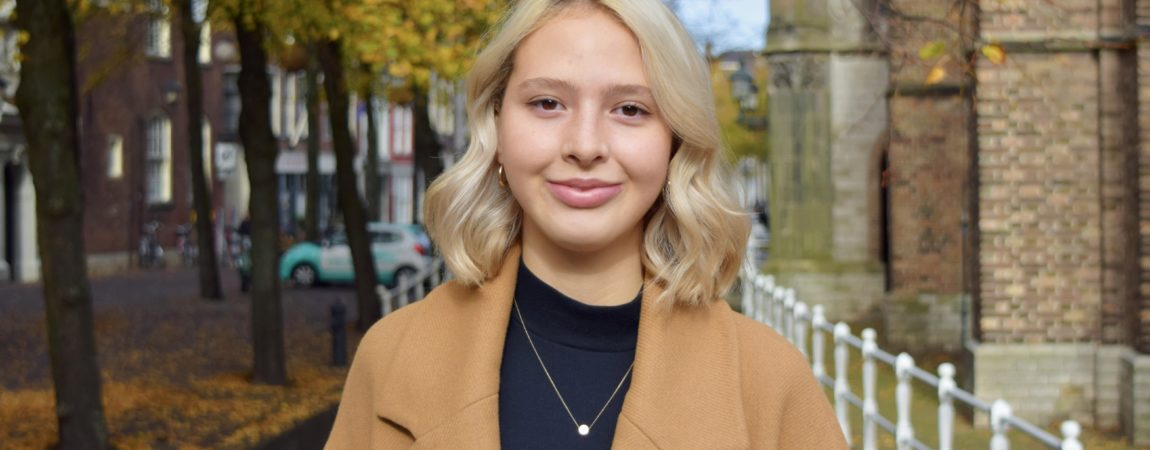On entrepreneurship, learning by doing, and leaving the world healthier than you found it
Brontë Kolar has made a good habit of diving head first into the deep end and learning as she goes, successfully emerging at the other end with a new skill, insight, or life trajectory. Following a year of undergrad in which she struggled to keep pace with the other students, she joined a team building an electric aircraft. Though she had no prior experience, Brontë taught herself how to design circuit boards and ended up building the boards for an entire low voltage electricity system. When she was short of a few credits for graduation, she took up genomics and taught herself R — a programming language — to participate in a neurogenetics research project. It was because of these experiences, and her ability to self-start, that Brontë found herself drawn to the Innovative Genomics Institute and subsequently, UC Berkeley’s Master of Engineering program. This is just the beginning of her story.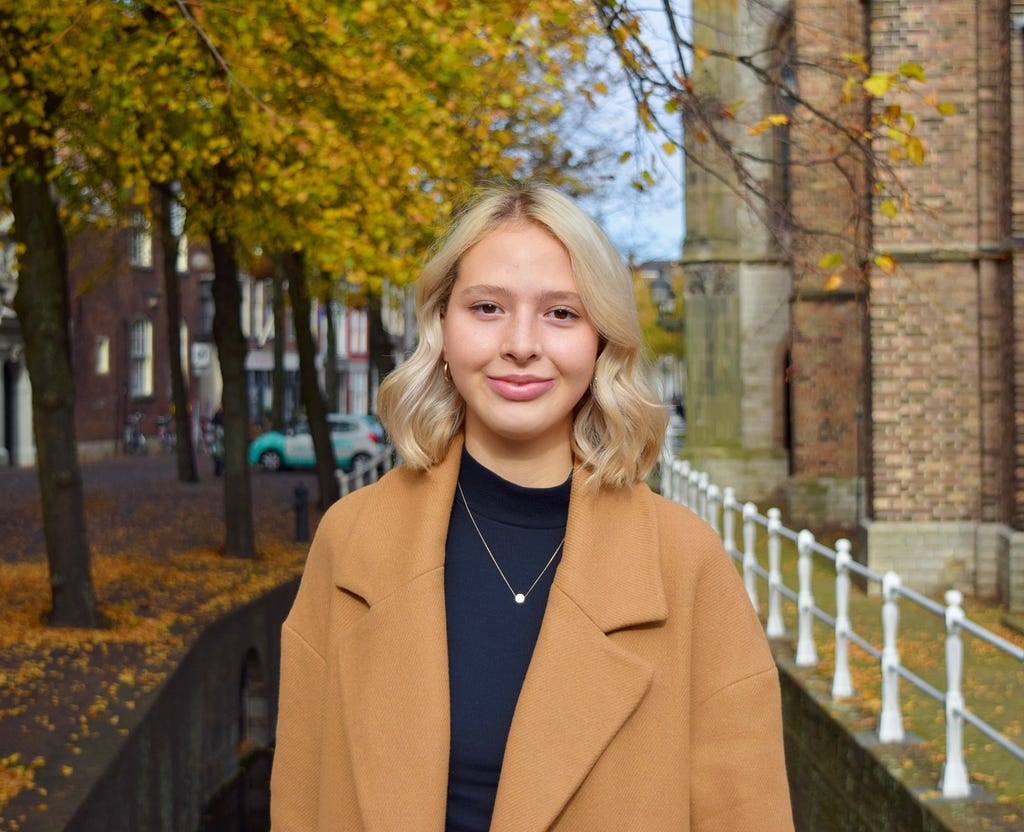
Would you mind telling us a bit about yourself?
While I am now in the MEng Bioengineering program at UC Berkeley, finding my way here has been a serendipitous journey to say the least! I grew up in a town near Toronto in Canada and always dreamed of seeing more of the world. After publishing research on propeller-powered hoverboards in high school, the only thing that overshadowed my dream to explore the world was my goal to pursue a career in engineering. I hold Czech citizenship through my father who was born in Czechia, so I decided to take the leap and move to Europe for my undergraduate studies. I studied computer science in the Netherlands, where I spent a lot of my time rowing, working on an electric aircraft team, and learning Dutch! At the end of my undergraduate studies, my spontaneous involvement in a neurogenetics project kickstarted my fascination with computational biology and I began working in a forensic genomics lab as a bioinformatics researcher right after I graduated. The supervisors I had in this lab further ignited my passion for this field and inspired me to move to Berkeley, CA. I am currently exploring new areas of bioengineering through my capstone project on using machine learning to predict coma patient outcomes, in collaboration with the Amorim Lab at University of California San Francisco (UCSF).What did you study in undergrad and why did you choose it?
During my undergrad at Delft University of Technology (TU Delft), I studied Computer Science and Engineering because I enjoyed coding and I knew I could apply these skills to other areas of engineering. However, I struggled a ton in my first year to keep up with other students in my program who were far more advanced than I was. At the end of my first year, I thought I wanted to go into embedded systems, so I joined a student team called Silverwing Aeronautics building an electric aircraft as an electronics engineer. I had absolutely no experience in this area, but I was committed to learning and within a few months I taught myself to design and assemble printed circuit boards. Thanks to the support of the other team members, by the end of the year I had built all of the boards we used for the low voltage electronic system.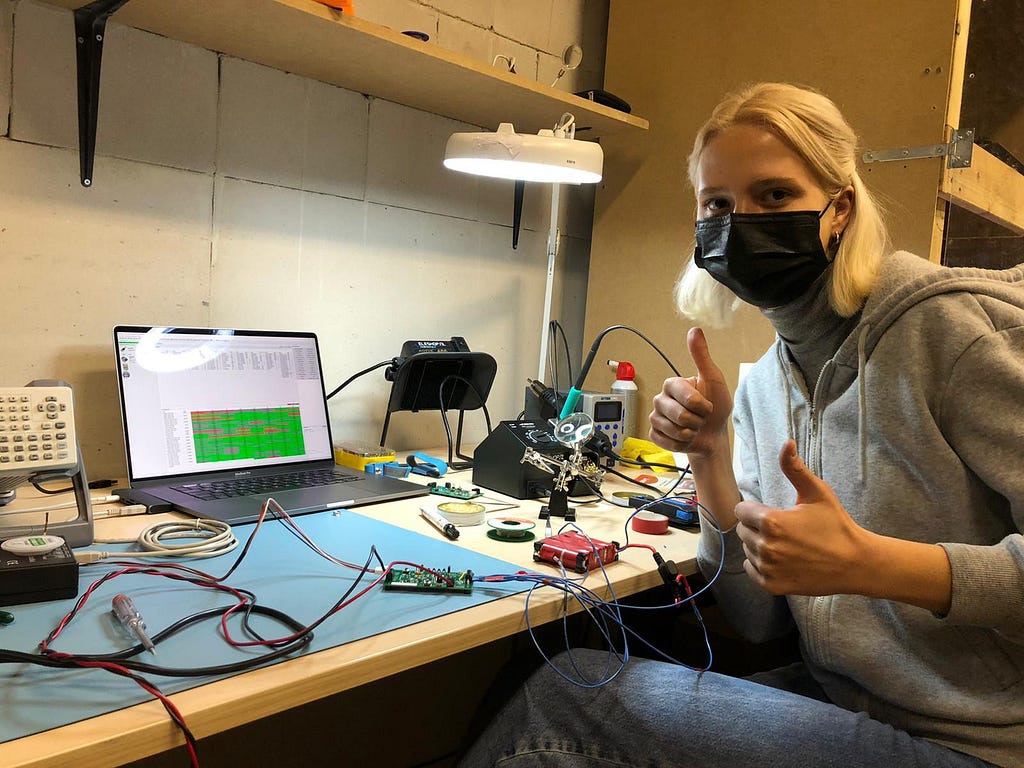
What led you to apply and join the Berkeley MEng program?
I took time away from my studies to participate in this competition in California and, while I enjoyed electronics, when I returned to Delft I still felt like I had not found a field that I fully clicked with. I did internships and part-time roles at large companies, but as I neared my graduation, this uncertainty just continued to grow. To make up for the credits I missed while I was in California, I joined the genomics minor at the University in Rotterdam, a neighboring city. It was a spur of the moment decision, but this minor program completely changed my life. The instructors were incredible and I learned so much about biology, a field I had not taken a course in since I was 16! I participated in a neurogenetics research project during the program and taught myself R to complete the necessary bioinformatics analyses. After the minor program concluded and I began a full-time research position, I decided to apply for master’s programs and transition into computational biology. I am incredibly inspired by work from a number of Berkeley researchers, notably that of Dr. Jennifer Doudna, and after learning of the creation of the Innovative Genomics Institute, I knew that Berkeley would be an amazing place to explore this area.The MEng program offered me a chance to explore the broader field of bioengineering and take part in professional development courses that would prepare me to be a leader in this field — it was the perfect combination!
What does it mean to you to be a woman in STEM?
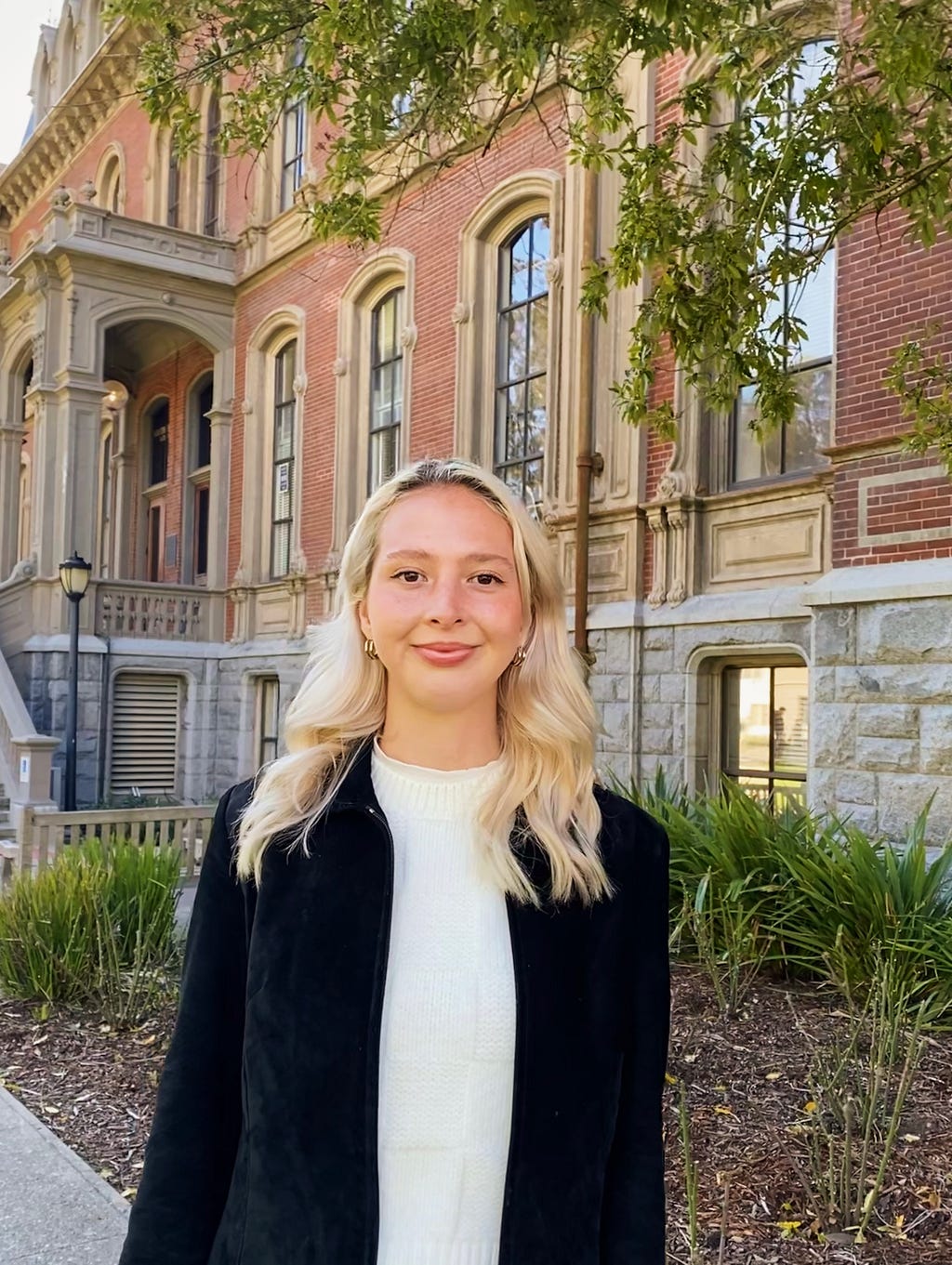
It is empowering to be surrounded here in Berkeley with so many inspiring women.
Where does your interest in entrepreneurship stem from and how have you built upon that interest in the MEng program?
I have always been fascinated by people who harness creativity and build an innovative company from the ground up. When I was 18, I got a scholarship to join a start-up program in China and I learned a lot of the basics of getting a start-up off the ground. During my undergraduate degree, I stayed involved with young companies and kept on learning. I was a founding board member of the first non-profit makerspace in Delft and joined Titan Batteries as both an electrical engineer and their first employee, two roles that allowed me to learn a lot from incredible people. In the MEng program, I felt ready to launch something myself. I had an idea with two other students (Ghita Houir Alami and Corrado Verhoeven) and we entered in the Calvanize Start-Up Competition, just to see what would come out of it. We were excited when we won the Consumer Product category with our app idea, Alter, and decided to enroll in the week-long NSF I-Corps program to keep talking to customers and evaluate the need for our idea. We pivoted a ton and learned a lot, but have now finally launched a beta version of our product this month!The MEng program has so many opportunities to learn — with faculty members that have years of experience and seemingly unlimited access to support. This ecosystem in Berkeley is like nothing I have experienced before and it is really exciting to be working on an idea here.
Is there something you are currently working on/interested in that you would like to share?
Just last week, our company, Alter, launched a web-app of our product idea to start getting user feedback. Alter is an AI-powered personal assistant that takes charge of all the small actions that you don’t want to be thinking about throughout your day. Essentially, it saves you time that you can invest in being more productive and helps you set new goals. You can test it out at www.ask-alter.app!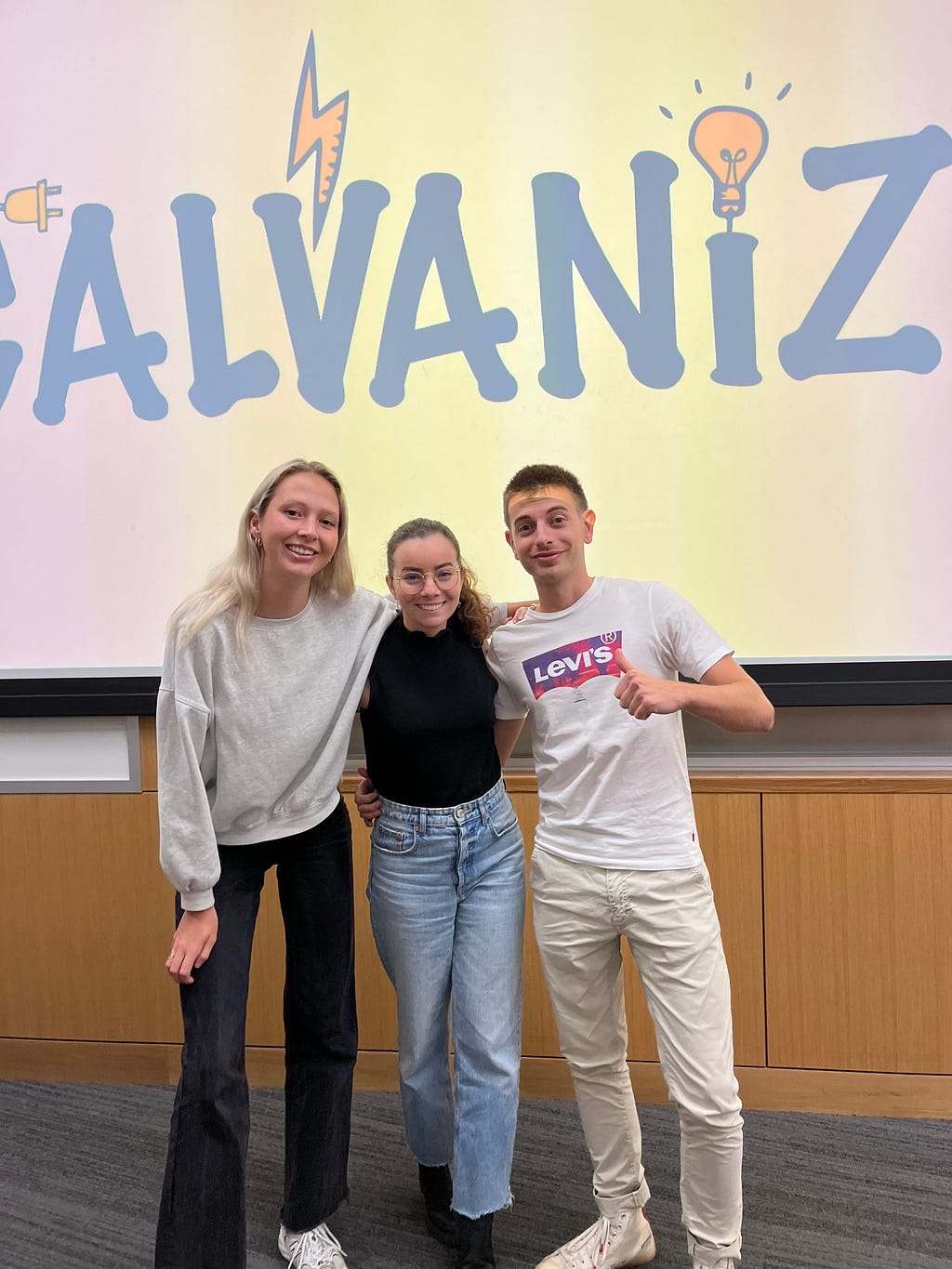
What are your professional goals and how have they expanded since joining the MEng program?
The MEng program exposed me to so many different applications of computational biology and made me realize how much I love research. I am very much interested in genomics and want to work in an environment that both fosters curiosity and aims to make a difference in this field. I am looking to be in an R&D environment and maybe even do a PhD in the future.There are so many mysteries to unravel and as a computer scientist at heart, our genome presents the ultimate coding challenge.My ultimate dream would be to work within or found an academically-focused start-up that is bringing new genomic treatments or tools to the world.
What are some of your hobbies/passions?
Music has always been a huge part of my life. My parents never had the opportunity to pursue music, so from a young age I was put into piano lessons. From there, I went through a Taylor Swift phase, learned guitar, and eventually I transitioned to playing jazz on the tenor saxophone. To make a difference in engineering requires creativity, so I try to keep space open every week to play music. In turn, I feel like this always inspires the technical work I do.What kind of impact do you want to have on the world?
I know many people say that they would like to make the world a better place. I would like to leave it healthier. Whether I am doing work in computational biology or otherwise, I want to bring new treatments and tools to those who need them most and increase accessibility to healthcare. Connect with Brontë. Edited by Veronica Roseborough.Brontë Kolar, MEng ’23 (BioE): “Women have a place in STEM.” was originally published in Berkeley Master of Engineering on Medium, where people are continuing the conversation by highlighting and responding to this story.


